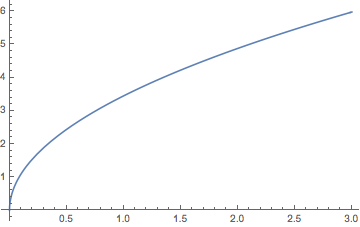The function I am trying to integrate is more complicated but I can simply write the function as (I had made a typo error, sorry. The '+' sign in front of the r should be '-'): $f(\omega ) = \int \limits_0^{\infty} r dr \int \limits_{-\infty}^{\infty} dz \frac{\epsilon}{\epsilon^2 + (\omega-z^2 - r^2)^2}$
So function decays as $1/x^2$. Let me choose $\epsilon = 0.1$, so function is close to zero everywhere. Mathematica cannot integrate efficiently even this simple function (it does, for the simple case after the correction, sorry everyone :( ). For my real case, it gave very huge numbers, which does not make sense. I have suspected the loss of precision, but still gave me huge numbers. (But this typo correction does not effect my real calculation, it is still giving huge result) I have tried:
- Set very high precision, no luck
- Tried increasing MaxRecursion and MinRecursion (as function is close to 0 mostly), no change
- Tried Trapezoidal method
Symbolic Processing is off, of course
NIntegrate[(1/10)/((1/10 - x^2 + r^2)^2 + 1/100) r, {x, -\[Infinity], \[Infinity]}, {r, 0, \[Infinity]}]
Any idea how to make this integration more efficient? Or a help understanding why this huge number problem appears?



ris1/4 (\[Pi] - 2 ArcTan[1 - 10 x^2]). Integrating it with respect toxdoes not converge. Does that seem right? $\endgroup$